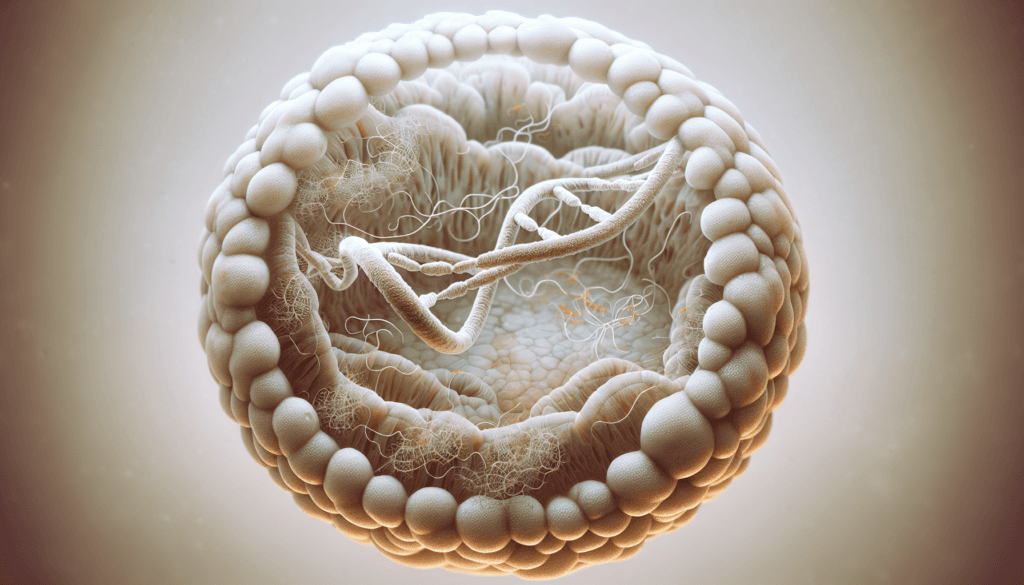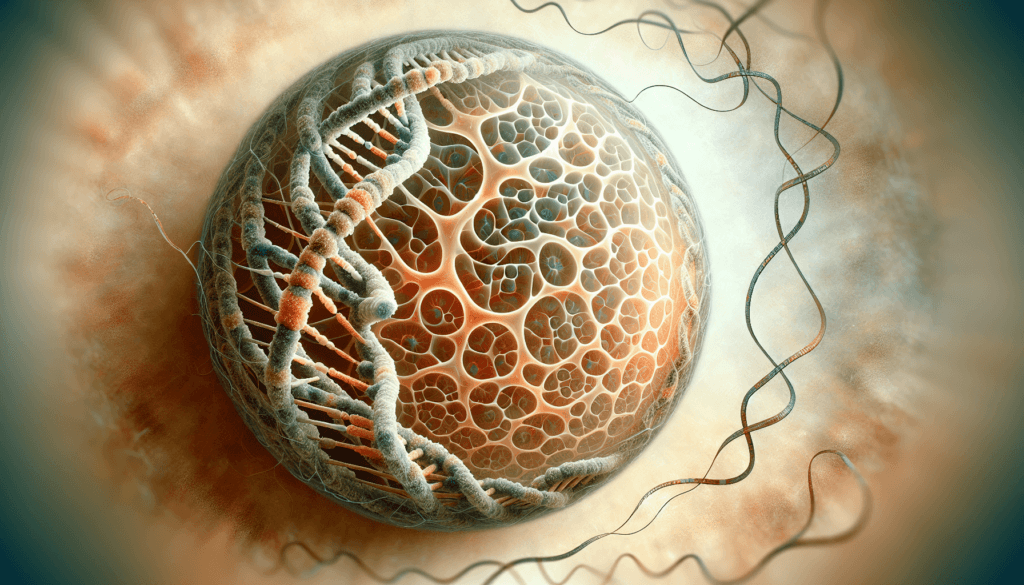Have you ever wondered if the benefits of Human Growth Hormone (HGH) might come with hidden risks, such as the potential to cause skin cancer? It’s an important question, especially as more people explore ways to turn back the biological clock. There’s an intriguing allure to the promise of reversing your biological age by up to 20 years or more with HGH. But like all things that offer significant benefits, it’s crucial to weigh these against potential risks. Let’s walk through this topic together, delving into what HGH is, its benefits, and any links to skin cancer.

What is Human Growth Hormone (HGH)?
Human Growth Hormone is a naturally occurring hormone produced by the pituitary gland. It’s the substance that plays a major role in growth, body composition, cell repair, and metabolism. So, why is it gaining attention for its anti-aging properties? The answer lies in its ability to boost protein production, promote fat utilization, and potentially improve skin elasticity and muscle tone.
The Science Behind HGH
Table of Contents
This hormone stimulates growth in children and helps maintain the tissues and organs throughout your life. As you age, the levels of HGH naturally decline, leading to some less desirable aging effects, such as increased body fat and decreased muscle mass.
HGH Supplements and Therapies
HGH can be introduced into the body via supplements, injections, or prescription medication. While some people take HGH to address growth hormone deficiencies, others seek its acclaimed anti-aging benefits. However, it’s worth examining both the positive and negative implications of this hormone.
The Potential Benefits of HGH
Exploring HGH’s impact on age reversal is like opening up a bag of tricks nature holds. When used in a controlled manner and under medical supervision, HGH can potentially offer several advantages that might indeed make you feel younger than your years.
Reversing the Biological Clock
Imagine looking and feeling as vigorous as you did two decades ago. HGH is reputed to help reduce body fat, increase lean muscle mass, enhance skin elasticity, and improve energy levels. For many, these potential benefits are alluring.
Enhanced Metabolism and Muscle Growth
HGH is known for enhancing metabolism, which can help with weight management and muscle growth. If you’re someone who is invested in maintaining an active lifestyle, this might sound appealing.
Skin Elasticity and Repair
One of the most attractive claims about HGH is its potential to improve skin health. By increasing collagen production, HGH helps support increased skin elasticity and thickness, which might contribute to fewer wrinkles and a more youthful appearance.
Weighing the Risks: Can HGH Cause Skin Cancer?
It’s sensible to question whether the fountain of youth-like benefits of HGH come at a price, particularly the risk of skin cancer. Unraveling this concern requires an understanding of how HGH interacts with cell growth and repair.
The Concerns Surrounding HGH and Cancer
HGH encourages cell growth, a process which, if unchecked, can potentially lead to malignant cell proliferation. This is a primary concern with any hormone or supplement that influences growth at the cellular level.
Skin Cancer: Types and Causes
Before diving deeper, let’s quickly look at what skin cancer entails. Skin cancer typically manifests as either non-melanoma, such as basal cell carcinoma and squamous cell carcinoma, or melanoma, which is less common but more dangerous.
- Non-Melanoma: Generally linked to sun exposure and usually less severe.
- Melanoma: Tends to spread quicker and can be more difficult to treat if not caught early.
Current Research and Findings
While direct links between HGH and skin cancer are not entirely conclusive, studies suggest caution. Some research indicates that elevated levels of growth factors, including HGH, may play a role in cancer development. However, it is important to approach this information carefully, as further research is needed for definitive conclusions.
The Medical Perspective on HGH Use
To properly assess the situation, a well-rounded understanding from medical professionals can provide clarity. As with any powerful tool, the key to HGH therapy is moderation and supervision.
The Role of Prescription and Supervision
HGH should ideally be used under a doctor’s guidance, specifically for those with growth hormone deficiencies, rather than self-prescribed for anti-aging purposes. Physicians can monitor hormone levels, manage dosages, and watch for potential side effects.
Common Side Effects of HGH Abuse
Excessive consumption or inappropriate use can lead to numerous side effects, such as joint pain, edema, and insulin resistance. Furthermore, HGH misuse can potentially increase the risk of cancerous growths.
Recommendations for Safe Use
Safe HGH usage involves securing a diagnosis for HGH deficiency, following dosage guidelines, and conducting regular check-ups to monitor health outcomes. It is crucial to understand that while HGH holds promise, its application must be carefully managed.

Sorting Fact from Fiction
Navigating the maze of information about HGH and skin cancer necessitates a critical approach. The internet is brimming with claims—some exaggerated, others valid.
Breaking Down Myths and Misconceptions
Separating myth from facts involves discerning hearsay from scientifically-backed evidence. Many claims online oversell the benefits, while underreporting or misinterpreting the risks associated with HGH.
Community Discussions and Anecdotes
While personal stories of HGH’s effect on aging are often positive, they should be taken as subjective experiences rather than universal truths. Engaging with both scientific literature and anecdotal experiences can provide a clearer picture.
Making Informed Decisions
Ultimately, the decision of whether to use HGH is personal and should be informed by both your health needs and potential risks. Understanding both aspects will empower you to make choices that align with your health goals and values.
Weighing Personal Health Goals
Consider what you aim to achieve with HGH—whether it’s from an aging, bodybuilding, or metabolic standpoint—and weigh these against potential risks.
Consulting Health Professionals
Engage with doctors who are knowledgeable about hormone therapies, particularly endocrinologists, and ensure that any HGH therapy aligns with a comprehensive health plan. Their expertise can guide you through the decision-making process.
Lifestyle Considerations
Enhancing your lifestyle through balanced nutrition, exercise, and mental well-being can complement any hormone therapy you might consider. Remember, HGH is only one aspect of a holistic approach to health and wellness.
Conclusion
While the allure of HGH’s anti-aging benefits cannot be denied, it’s crucial to remain informed about the full scope of its effects, including any potential links to skin cancer. By prioritizing knowledge and care, you can make decisions that safeguard your future well-being. Engage with your healthcare provider, consider your personal health objectives, and continue to research both benefits and risks. Through careful consideration, you can navigate this path with confidence and clarity.





